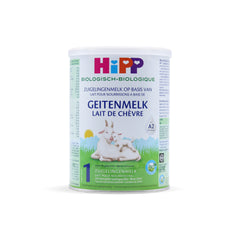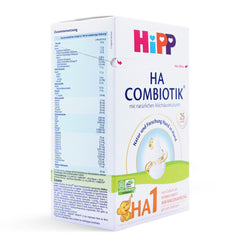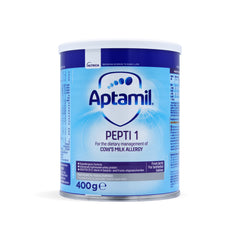Best Lactose Free Baby Formula
87 hours of research6 minute read

There are many types of baby formulas in the market and it can be challenging for parents to choose the right formula for their babies. If your baby has tummy troubles, you are probably asking: Is it lactose intolerance, cow’s milk allergy, or cow’s protein sensitivity?
Many people assume that lactose intolerance covers milk protein allergies and sensitivity – it does not. There are some similarities in symptoms and it can be confusing for parents. The best thing to do in this case is to discuss it with your pediatrician so you can get guidance on what is best for your baby.
Two common considerations when choosing a formula are lactose and milk protein. On this blog, we will answer the following questions:
- What is lactose and why is it vital in choosing a baby formula?
- What is lactose intolerance?
- What are the differences among lactose-rich, low-lactose, and lactose-free baby formula?
- What are alternatives to lactose?
- What is milk protein and why does it play a huge role if a baby will respond well to baby formula?
- What is milk protein allergy?
- What is milk protein sensitivity?
- What is the best formula of babies with milk protein allergy and milk protein sensitivity?
- What are the symptoms of the following conditions?
- Lactose intolerance
- Milk protein allergy
- Milk protein sensitivity
Lactose In Baby Formula
What is lactose and why is it important when choosing a baby formula?
Lactose is sugar that is naturally present in milk – breast milk, baby formula, and animal milk. This is an important carbohydrate for babies because this is one of the primary sources of energy for all daily activities.
What is lactose intolerance?
In order for the body to use lactose, it has to be broken down by lactase, an enzyme in the body. If the body does not produce lactase or does not produce enough lactase, the body cannot use lactose as a source of energy. The lactose in the milk cannot be digested by the body – this is commonly known as lactose intolerance. Lactose intolerance in babies is actually rare and often confused with milk protein allergies and milk protein sensitivity.
What are the differences between lactose-rich, low-lactose, and lactose-free baby formula?
| Lactose-Rich Baby Formula | Low-Lactose Baby Formula | Lactose-Free Baby Formula |
|---|---|---|
| Baby formula that is entirely lactose-based. The only carbohydrate in this type of baby formula is lactose. | Baby formula that reduced amounts of lactose. Lactose is substituted with an easy to digest vegetable oil blend beta palmitate or other easy to digest complex carbohydrate like maltodextrin that releases energy slower than simple carbohydrates |
Baby formula that does not contain lactose. The carbohydrate used in this type of formula is normally corn syrup. |
|
|
Please note that Organic Life Start does not specifically stock any Lactose-free baby formulas. |
Protein In Baby Formula
What is milk protein and why does it play a huge role if a baby will respond well to baby formula?
I. Cow’s Milk
Cow's milk is the typical (and default) source of protein in infant formula. Let's look over the many forms of cow's milk protein that are offered.
A cow's milk-based formula will contain one of two primary forms of cow's milk protein. These are casein and whey proteins. In reality, whey and casein are not two separate proteins. Each one of them represents a group of several proteins (or chains of amino acids linked together). The behavior of the two kinds of proteins in the presence of acid is what sets them apart (like stomach acid).
- Whey proteins are the ones that stay liquid after milk coagulates (curdles). Whey proteins stay "liquid" in the stomach longer than casein proteins, which causes the stomach to empty more swiftly into the intestines. Furthermore, there is less chance that whey proteins will cause allergies to flare up.
- Casein proteins take longer to digest because they curdle. Casein proteins are the key factors behind the majority of milk allergies. Casein proteins are regarded to be more "reactive" than whey proteins, making them more likely to trigger allergies or general dyspepsia.
II. Goat’s Milk
Goat milk contains higher protein content than breast milk, but it doesn’t mean that goat milk formula is dangerous for your little one. Goat milk contains naturally low levels of whey protein. Also, the protein in goat’s milk is easier to digest than cow’s milk. It is because goat’s milk protein tends to form a soft and light curd, which does not lay heavy in the stomach and digests easily.
What is milk protein allergy?
Milk protein allergy is an actual allergic reaction where the baby’s immune system treats whey and casein as foreign materials. The body then creates antibodies against the milk proteins and releases chemicals such as histamine. A small number of babies show sensitivity to cow’s milk protein.
What is milk protein sensitivity?
Milk protein sensitivity is much more common than milk protein allergy. This is based on the digestive system and is not as serious as milk protein allergy. With sensitivity, babies may eat small amounts of milk protein. Many families report that goat milk formulas, unlike cow’s milk, do not cause any trouble for their babies who have digestive problems.
What should be given to babies with milk protein allergy and milk protein sensitivity?
| Cow’s Milk Protein Allergy | Cow’s Milk Protein Sensitivity |
|---|---|
| Hypoallergenic Baby Formulas – long chain milk proteins that have been hydrolyzed into smaller pieces, excludes casein from the cow's milk. Smaller whey protein is easier to digest, and therefore has a lower risk of adverse reactions to allergenic ingredients found naturally in milk. | Goat milk – contains naturally low levels of whey protein. Also, the protein in goat’s milk is easier to digest than cow’s milk. It is because goat’s milk protein tends to form a soft and light curd, which does not lay heavy in the stomach and digests easily. Compared to cow’s milk, goat’s milk has negligible amounts of casein protein, alpha-S1. Alpha-S1 causes allergic reactions, such as cow’s milk allergy. |
Please note, the following two HiPP formulas are hydrolyzed by a factor of 86-87% and may not be suitable for all babies with CMPA. Discuss with your pediatrician before trying these formulas.
|
|
Please note: The definitions of the terms partially hydrolyzed and extensively hydrolyzed vary by country, and there is no global standard for the degree to which milk proteins are hydrolyzed in context of these labels. Aptamil Pepti Formula is hydrolyzed by a factor of 90%, while HiPP HA Formula is hydrolyzed by a factor of 86-87%. Only use these formulas under the recommendation, guidance, and supervision of your child's pediatrician.
Symptoms Of Lactose Intolerance, Milk Allergies, & Milk Sensitivity
Since the three conditions are usually confused with one another, it is important for parents to discuss their babies’ condition with their pediatricians.
Below are the symptoms of the three conditions:
| Lactose Intolerance | Milk Protein Allergies | Milk Protein Sensitivity |
|---|---|---|
|
|
|
Lactose Free Formulas & Cow Protein Sensitivity
What you feed your babies plays an important factor in their growth and development. Parents need to determine if their babies have lactose intolerance, milk protein allergies, or milk protein sensitivity so they can be given the right formula for their condition.
For babies with lactose intolerance or sensitivity to lactose, finding the right baby formula can be a challenging task. Luckily, there are lactose-free baby formula options available to provide a gentle alternative for those with specific dietary needs. Lactose-free formulas are specially formulated to be easy to digest and gentle on sensitive tummies.
Lactose, a natural sugar found in milk, is present in various dairy products, including baby formula lactose free, lactose free milk, lactose free cheese, lactose free yogurt, lactose free ice cream, lactose free cream cheese, lactose free protein powder, lactose free cottage cheese, lactose free butter, lactose free whole milk, lactose free condensed milk, lactose free chocolate milk, lactose free cream, lactose free milk powder, lactose free ricotta cheese, and lactose free heavy whipping cream. For babies who have difficulty digesting lactose, it's essential to explore lactose-free alternatives to ensure their comfort and well-being. These products allow parents to maintain a balanced diet for their little ones while addressing lactose intolerance concerns.
When choosing lactose-free dairy products or baby formula lactose free ensure to read labels and check for added sugars or artificial ingredients. Look for products that provide essential nutrients and vitamins necessary for your baby's growth and development. Consulting with a pediatrician can also be beneficial in determining the best lactose-free options for your baby's specific needs.
There are available organic options with no synthetic ingredients to aid you in making the right feeding choices for your babies.
Most Popular Low-Lactose Formulas
Organic Life Start is committed to providing accurate, reliable, and trustworthy information to parents and caregivers. We carefully choose credible sources and follow a meticulous fact-checking process to uphold the highest standards in infant nutrition and parenting advice. To learn more about our dedication to accuracy, please explore our editorial guidelines.
Link To Sources
- https://kidshealth.org/en/parents/milk-allergy.html
- https://health.clevelandclinic.org/infant-with-serious-tummy-troubles-understanding-milk-protein-allergy-and-intolerance
- https://www.webmd.com/parenting/baby/milk-allergy-vs-lactose-intolerance
- https://www.healthychildren.org/English/healthy-living/nutrition/Pages/Lactose-Intolerance-in-Children.aspx











Eileen Arana -
During one of those sleepless nights spent spiraling through baby forums, I came across so much conflicting advice on whether babies really need lactose-free formula or if it’s just a temporary sensitivity. What has worked best for other parents? It’s honestly overwhelming. As a first-time mom, it’s been tough figuring out if my baby’s tummy troubles are just part of the adjustment or something more serious. This helped me understand the difference between lactose intolerance and milk protein allergies, which I didn’t even know were two separate things. I really appreciate how clearly it explains when lactose-free formula is truly needed versus when it might be overused.
Drake T -
We initially thought that our baby had CMPA because of frequent diarrhea and vomiting. After getting her tested, we found out that she has lactose sensitivity, and we had to switch formulas. I asked the parents’ communities for recommendations. My baby used to be on the regular Hipp German, and they suggested switching to Hipp Comfort. It has hydrolyzed proteins and lower lactose content compared to other formulas. Hipp Comfort was a match to her requirements, and she no longer struggled with her initial symptoms. So far so good! If you are struggling with feeding your baby, I hope it gets better for you soon!
Sylvia Riggins -
As a parent of a baby with lactose sensitivity, finding the best lactose-free baby formula was a top priority for me. After trying a few options, I discovered that not all lactose-free formulas are created equal. The best ones are gentle on the stomach, easy to digest, and still provide complete nutrition with essential vitamins and minerals. I noticed a big improvement in my baby’s comfort—less gas, fussiness, and no more diarrhea—after switching to a high-quality lactose-free formula.
What I appreciated most was that it still contained important ingredients like DHA for brain development and prebiotics to support gut health. Many top lactose-free formulas are also free from corn syrup and artificial additives, which gave me added peace of mind. The taste of HiPP Dutch Goat seemed pleasant enough for my baby to accept without any fuss. It’s reassuring to know that even with dietary restrictions, my baby can still thrive and grow well. For parents facing similar challenges, a reliable lactose-free formula can make all the difference.